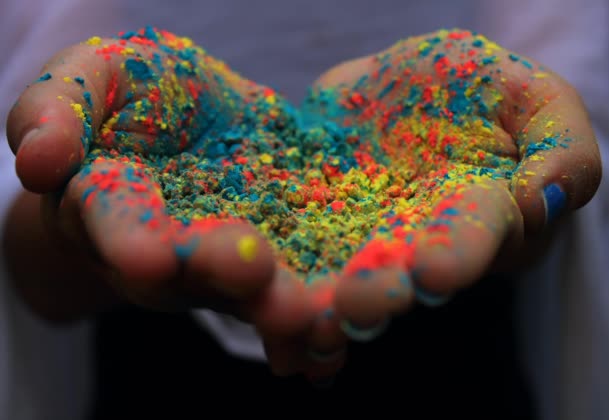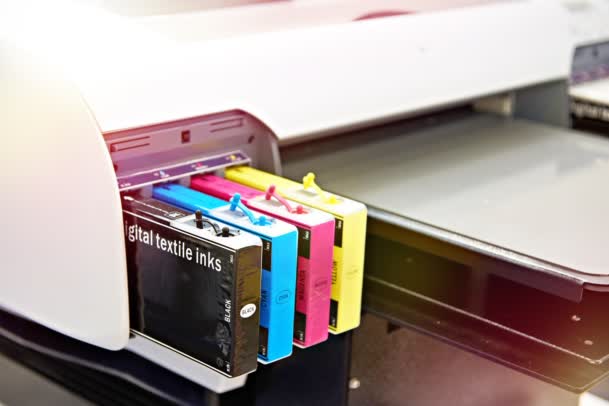Textile Fabrics
Improving general sustainability of the textile printing industry
The textile printing industry has been under the direct scrutiny of various governmental entities and NGOs. That is pushing the industry to become more sustainable. One of the most important challenge is to reduce the amount of water consumed during the production of printed textile .
As an eco-responsible company, we are fully committed to the development of solutions that encourage the adoption of digital printing, which is a right step in the sustainable direction.
Pre-treatments for all digital textile printing inks
Regardless of the type of dyestuff involved in the coloration of the textile fabrics, digital printing offers an intrinsic environmental benefit of chemical waste reduction in terms of materials required to clean the conventional printing machines.
We offer optimized textile preparations for digital printing for all types of inks and fabrics. We have designed those preparations to control the penetration and the bleeding of the digital inks on the surface of textile fabrics, and to maximize the color fixation, thus minimizing the dyestuff waste.

Hyper-dispersants for inkjet sublimation inks

In addition to the general environmental benefit of digital printing, sublimation and pigmented textile inks exibits higher sustainable properties. In particular, they require minimal or no washing at the end of the printing process.
Today Digital sublimation printing on polyester is a well-established technology that represents approximately 50% of the digital textile market. For this ink type, as well as for disperse dyes in general, we propose our hyper-dispersants
Hyperdispersants for sublimation inks
Universal dispersant for pigment and disperse dyes (e.g. Dye-sub).
Better heat stability than ligno-sulfonates.
Dispersant specific to disperse dyes. Better heat stability on DR 60
These hyper-dispersants show an outstanding affinity for the disperse dyes, which do not behave like classic pigments and require suitable products to exhibit fine and stable aqueous dispersions.
Binders for digital textile pigmented inks

Pigment printing is the most common ink type in traditional printing. Likewise, digital textile pigment printing is gaining increasing attention.
The binder is the key ingredient that controls the rub and wash fastness properties of a pigment printed fabric. In order to obtain good fastness, conventional inks may resort to large amounts of binders with marked film forming properties. This is not possible in inkjet because of the viscosity limitations imposed by the technology and the risk to the integrity of the print-heads. We have developed a special range of ESAJET binders for textile application to overcome that obstacle.
Our digital binders offer excellent fastness properties and fabric softness, preserving the integrity of the print-heads. This statement is particularly accurate in the case of the ESAJET 200, which does not exhibit any filming property before heat treatment above 150°C, and is therefore fully safe to the print-heads, as illustrated in the video hereafter:
Binders for pigmented inks
Unique textile binder specifically designed for Inkjet.
Fully safe for the printhead with very soft touch. Recommended for all colors
Textile binder with good re-solubility
Recommended for CMYK and white inks.
New textile binder for white ink. DTF and DTG printing applications.
Textile binder with good re-solubility
Ideal to blend with ESAJET® D 8 inside a white ink.
Self-crosslinkable acrylic binder with excellent fastness properties and compatibility to a wide range of commercial dispersions
Our digital binders offer excellent fastness properties and fabric softness, preserving the integrity of the print-heads. This statement is particularly accurate in the case of the ESAJET 200, which does not exhibit any filming property before heat treatment above 150°C, and is therefore fully safe to the print-heads.
Hyperdispersants for digital textile pigmented inks
An inherent deficit of color vividness in digital prints comes from the natural tendency of the low viscosity inkjet inks to penetrate inside the fabric by capillarity. In order to control that penetration, we have developed our Lamberti Jet P pre-treatments.
We have developed a new range of FLUIJET® hyper-dispersants which deliver high milling efficiency, high level of gloss due to small particle sized of stabilized pigments. They also exhibit an increased reactivity on cationic pre-treatments on textile, compared to self-dispersed dispersions, resulting in enhanced image quality.
Hyperdispersing Agents for pigmented inks
Universal dispersant for organic and inorganic pigments and dyes.
Universal dispersant for pigments. A step in direction of SDP dispersions in terms of reactivity on cationically pre-treated fabrics. Recommended to use with ESAJET® 200.
VOC free version of Fluijet 1730
Further development of FLUIJET® 1730 with enhanced reactivity on cationically pre-treated fabrics.
Other ingredients
Besides our targeted solutions, we have a wide portfolio of other ingredients to prepare premium inks. We rely on Lamberti’s core technologies to offer in particular an extensive range of thickeners to increase the inkjet ink viscosity to the specifications of high-viscosity printheads, without resorting to massive amounts of glycol, and wetting agents to control the print-through and print definition.